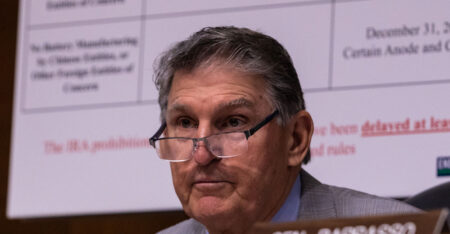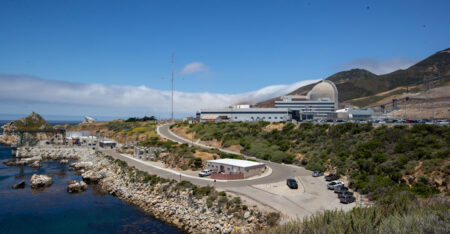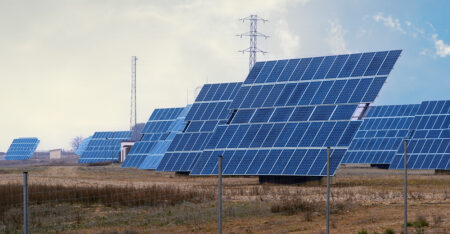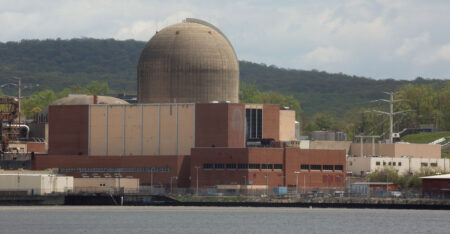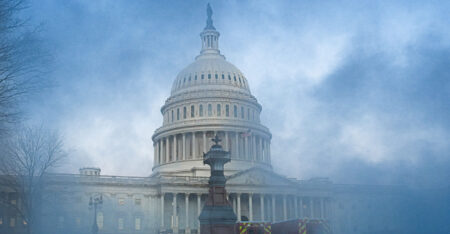We all want a future where humans can thrive in a clean environment. But as the eye-opening documentary “Climate the Movie: The Cold Truth” reveals, while we hear dire warnings that we must rapidly eliminate fossil fuels to avoid a climate catastrophe, we are manufacturing a humanitarian crisis of our own.
The movie focuses on Grace Nyakenanda, a resident of Kisii, Kenya. She lives without access to electricity or gas, relying instead on burning wood and dried dung for cooking and heating.
Unfortunately, reliance on these methods exposes her and millions of others around the world to harmful fumes, leading to serious health issues, such as lung disease, blindness, and premature death.
Wealthy countries built their economic resilience on coal, oil, and gas. Denying the same benefit to poor countries for the sake of hypothetical climate risk is immoral.
As Nobel Prize-winning physicist John Clauser bluntly puts it, “It’s all a crock of crap.”
The documentary shows that the goal of energy policy should be to provide clean, reliable, and resilient power to raise standards of living, both in America and overseas.
That means maintaining an energy mix that can handle nature’s curveballs. It means maximizing our options, not banning entire categories of energy the world still needs. But as environmentalists seek to ban fossil fuels, they are raising the price of electricity for some and depriving others in emerging economies of that valuable resource.
The movie aired on YouTube the same week that the Environmental Protection Agency issued final regulations requiring 70% of new cars sold to be hybrid or battery-powered electric by 2032. But that raises costs and inconveniences households for no gain, because banning fossil fuels in America would not affect global temperatures.
Even if America stopped emitting carbon overnight, global temperatures would decline by less than 0.2 of a degree Celsius by the year 2100, according to government models.
As Clauser states in the film, “CO2 is quite unimportant in controlling the Earth’s climate.”
Despite headlines about worsening hurricanes, data from the National Oceanic and Atmospheric Administration shows no long-term increase in the frequency or intensity of U.S. hurricanes since records began being kept in the mid-1800s.
“Climate the Movie: The Cold Truth” shows that climate models have consistently overestimated warming, running 43% hotter than actual observations over the past 50 years.
Policymakers are nonetheless rushing to implement aggressive emissions cuts and renewable energy mandates that prioritize green energy, but raise costs and result in more blackouts.
The more an electric grid relies on intermittent sources of energy, such as wind and solar generation, the more vulnerable it becomes to blackouts.
For the world’s poorest nations, giving up fossil fuels is catastrophic. Affordable, dependable power is a life-or-death matter when it comes to delivering basic needs, such as health care, sanitation, safe drinking water, and protection from heat waves and cold snaps.
Thanks to economic growth powered by fossil fuels, deaths from natural disasters have plummeted as societies gained the means to protect themselves.
The real crisis we risk is one of our own making.
Aggressive climate policies make us dangerously dependent on supply chains for solar panels, wind turbines, batteries, and minerals controlled by China.
Germany’s renewable-energy mandates have driven consumer prices to more than triple the levels seen in the United States. This entirely avoidable situation places a heavy burden on German businesses, unnecessarily increasing their operating costs.
This has trade unions sounding the alarm about the imminent threat of deindustrialization as companies struggle to remain competitive.
By all means, let’s use renewable technologies as they become reliable and cost-effective, including nuclear energy. Attempting to legislate an accelerated transition is a recipe for disaster when reality collides with wishful thinking.
Protecting human life and well-being has to be our top priority. That’s the firm foundation on which all environmental progress depends.
Only by embracing energy abundance and resilience can we continue to raise domestic and international standards of living and preserve hard-won economic gains
In our fervor to save the planet, let’s not forget the lives that hang in the balance.
“Climate the Movie: The Cold Truth” is free and available for viewing here.
Read the full article here






